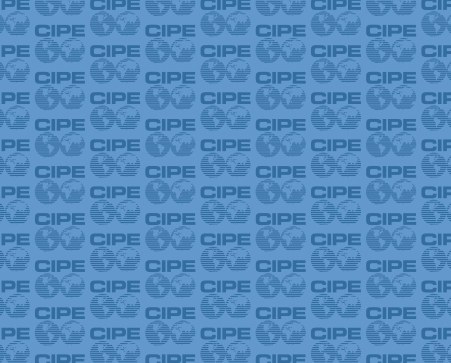
Researchers have recently identified 23 words they term “ultraconserved,” meaning they haven’t much changed since the end of the Ice Age 15,000 years ago. These words—mother, man, fire, worm, and spit, among others—sound and mean the same in most Eurasiatic language families. The most commonly shared word is “thou” – the singular form of “you”. Imagine that. Among the nearly 700 languages in these families, stretching from Great Britain to Western China, the Arctic to southern India, all of them share a very close version of this word.
Words matter because they allow us to communicate clearly. A decade ago, no agreed-upon phrase existed in Arabic for corporate governance, making debate and reform difficult. An issue can’t be addressed if it can’t be clearly defined. To that end, a CIPE-led effort resulted in the first standardized term for “corporate governance” in the Arabic language: hawkamat ash-sharikat. Developing a common term opened the door for broad-based dialogue on corporate governance in the Arab world.
Sometimes it seems that CIPE has its own language. Look at the word cloud above, created from CIPE’s 2012 Annual Report. Democracy, business, governance, public sector, private sector. These words are probably familiar, but it might not be immediately clear how they work together.
If you look at it more closely, however, you’ll see they are parts of a fully functioning, democratic, free market society. All of the pieces move together—an empowered, informed electorate can hold its government accountable. A strong private sector forms the engine of job creation and economic growth within a society. A true democracy is dependent on its citizens, its private sector, and its government to act in good faith and with good intentions.
Words matter for what they represent. The words in the image above represent the hard work of CIPE’s partners over the last year. Their stories and successes are inspiring, and we hope you’ll take the time to read about them here.
Published Date: May 15, 2013
